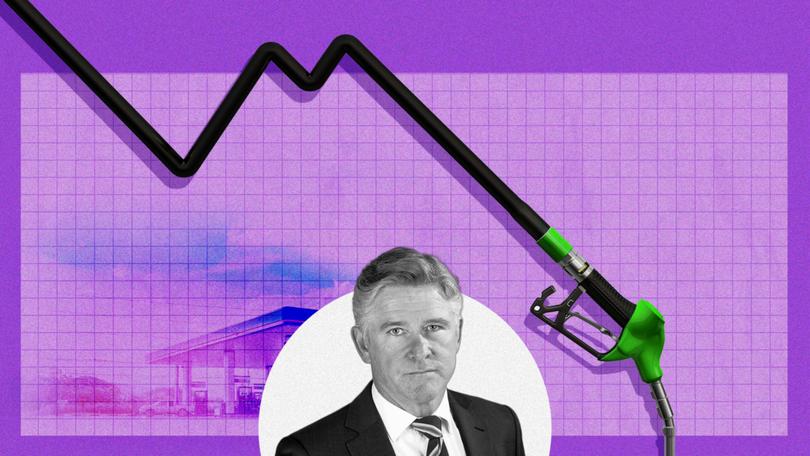MARK RILEY: Political numbers nerds predict petrol price drop will also bring down Australia’s inflation rate
MARK RILEY: This week around the corridors of Parliament House and the Treasury, numbers nerds are privately quite pleased with themselves. Here’s why...

There are few things that fuel inflation more than fuel.
Petrol prices officially comprise up to 5 per cent of the Consumer Price Index.
But its influence is much broader than that.
Sign up to The Nightly's newsletters.
Get the first look at the digital newspaper, curated daily stories and breaking headlines delivered to your inbox.
By continuing you agree to our Terms and Privacy Policy.The petrol prices flow directly into transport costs for most of the other items — food, clothing, furniture — that fill the quarterly CPI basket.
When fuel prices go up, so does the price of almost everything else.
It stands to reason then that whispers of falling petrol prices set off a frisson of excitement among those numbers nerds in the political diaspora whose job it is to monitor such things.
This week around the corridors of Parliament House and the Treasury, those numbers nerds are privately quite pleased with themselves.
The average price for unleaded petrol at bowsers around Australia has steadily fallen by up to 53 cents a litre over the past six weeks.
The largest fall has been in Adelaide, where the average price today is $1.75 a litre.
The fall in Brisbane from the six-week peak is 51 cents to an average of $1.80.
Melbourne has also seen a steep drop. Average petrol prices today of $1.82 a litre are 47 cents cheaper than they were at the beginning of April.
In Perth, prices have fallen by 40 cents a litre to $1.75.
The smallest drop has been in our biggest city, Sydney. According to the Australian Consumer and Competition Commission’s Petrol Price Cycle monitor, the average price there has fallen 26 cents a litre to $1.92.
This has gone largely without notice in our political conversation.
The Government isn’t talking about it.
Why? Because it knows that boasting about falling fuel prices will ensure it will also cop the blame when those prices go up again.
And all motorists know that what goes down at the petrol bowser also goes up.
What has excited the Government’s price watchers about this drop, though, is that it has happened over a reasonably sustained period of time.
A trend line has emerged over the past month and a half that has headed slowly but surely downwards.
The numbers nerds hope that this trend means the fuel price shocks sparked by Vladimir Putin’s invasion of Ukraine have now evened out.
And they hope it also proves that fears of a sharp and sustained spike in prices from the continuing conflict in Gaza have not eventuated.
Analysts warned early in the conflict that the resulting geopolitical instability could force the price of crude oil up above $US100 a barrel for a considerable time.
Instead, it peaked at around $US94 and has trended downwards since then to $US78 today.
All this matters in a cost-of-living crisis.
Petrol is one of the largest unavoidable costs for most families as they go about their daily lives.
There was considerable pressure on the Government to bring back the COVID-era fuel excise cut when the average fuel price was hovering stubbornly about $2 a litre.
Treasurer Jim Chalmers resisted that pressure, knowing that cutting the fuel excise would cost the Budget about $1 billion a month.
The important point at the moment is that the sustained fall in retail petrol prices could significantly help Chalmers achieve the Budget objective of driving inflation down below 3 per cent before Christmas, sparking earlier-than-predicted cuts in official interest rates.
Wednesday’s national accounts are expected to show that the economy is already slowing considerably. That is bad news in the broad, though it should also have the perversely positive impact of further dampening inflationary pressures.
Monthly inflation ticked up a little to 3.6 per cent in April. Treasury Secretary Stephen Kennedy told Senate estimates on Monday that he doesn’t dwell too much on the monthly data because of its inherent volatility.
He and Chalmers will be much more focused on the June quarter CPI result, which comes out next month.
The hope among the numbers nerds and others is that the falling price of petrol will help bring the official rate down further.
Not that anyone in the Government is saying that publicly.
It is, though, the big secret fuelling much discussion in the corridors of power.

